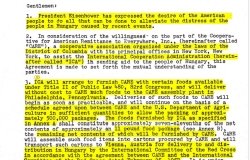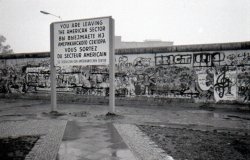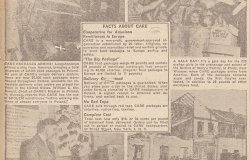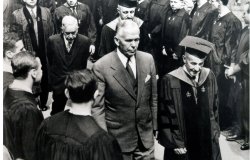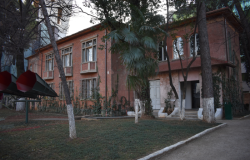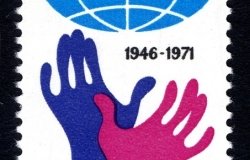CWIHP Off-site Workshop
The workshop Interkit aims to shed new light on the mechanisms of cooperation and conflicts within the socialist world, and to answer the question: how differences in political and cultural traditions and geopolitical locations interacted under the influence of the Soviet Union.
The Cold War International History Project, the Freiburg Institute for Advanced Studies at the University of Freiburg, the Center for Cold War International History Studies at East China Normal University, and the Slavic Research Center at Hokkaido Univeristy is pleased to announce an upcoming workshop entitled 'Interkit': An International Against China? Policy Coordination and National Interests in the Soviet Bloc in the Second Half of the Cold War.
One of the key questions of the history of East-Central European states between 1949-1989 is: to what extent could local political leaderships represent national interests, and to what extent were they mere executors of Soviet interests? In other words, where were the limits of political actions at home and in international relations and what were the domestic and international factors that defined those limits?
The workshop Interkit aims to shed new light on the mechanisms of cooperation and conflicts within the socialist world, and to answer the question: how differences in political and cultural traditions and geopolitical locations interacted under the influence of the Soviet Union. In order to achieve this goal, the workshop analyzes the relationship of East-Central European countries with the People's Republic of China. The workshop aims to highlight the similarities and differences between the China policies of different Soviet bloc countries, and between strategies of individual countries to articulate their national interests against the background of pressure from the Soviet Union. During the 1960s and 1970s, the China question concerned the vital interests of Moscow because China, the only major player of the Cold War that switched sides during the confrontation, posed a challenge to the leadership role of the Soviet Union within the international communist movement.
The focus of the proposed workshop is on Interkit. The phrase, never exactly defined but widely used in the socialist world, means, strictly speaking, a series of meetings of representatives from the International Departments (the highest foreign policy organ within the Central Committee) of seven ‘fraternal' parties from socialist countries (Bulgaria, Czechoslovakia, East Germany, Hungary, Mongolia, Poland, and the USSR) on China between 1967 and the mid-1980s. However, it also covers the whole coordination process of China policies of the Soviet bloc, including economic and trade relations (‘economic Interkits'), cultural contacts and China related research (‘Interkit' meetings of sinologist) as well as propaganda.
The workshop was held on 12th-13th May 2011 at the FRIAS house, Albertstr. 19.
Download the 'Interkit' Conference Report
Download the 'Interkit' Program
Visit the Freiburg Institute for Advanced Studies website for more information
For questions, please contact Peter Vamos at peter.vamos@frias.uni-freiburg.de.
Documents & Downloads
Related Programs

Cold War International History Project
The Cold War International History Project supports the full and prompt release of historical materials by governments on all sides of the Cold War. Through an award winning Digital Archive, the Project allows scholars, journalists, students, and the interested public to reassess the Cold War and its many contemporary legacies. It is part of the Wilson Center's History and Public Policy Program. Read more

History and Public Policy Program
The History and Public Policy Program makes public the primary source record of 20th and 21st century international history from repositories around the world, facilitates scholarship based on those records, and uses these materials to provide context for classroom, public, and policy debates on global affairs. Read more

North Korea International Documentation Project
The North Korea International Documentation Project serves as an informational clearinghouse on North Korea for the scholarly and policymaking communities, disseminating documents on the DPRK from its former communist allies that provide valuable insight into the actions and nature of the North Korean state. It is part of the Wilson Center's History and Public Policy Program. Read more

Hyundai Motor-Korea Foundation Center for Korean History and Public Policy
The Center for Korean History and Public Policy was established in 2015 with the generous support of the Hyundai Motor Company and the Korea Foundation to provide a coherent, long-term platform for improving historical understanding of Korea and informing the public policy debate on the Korean peninsula in the United States and beyond. Read more
